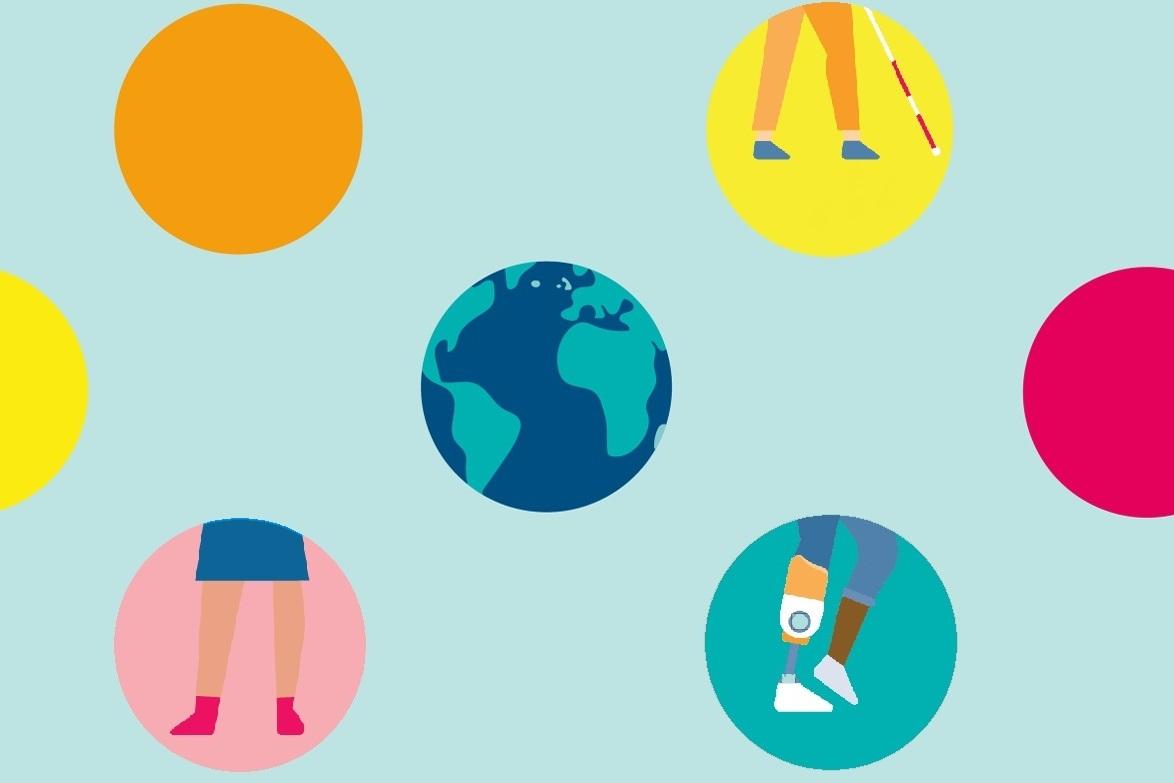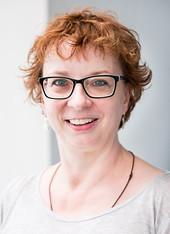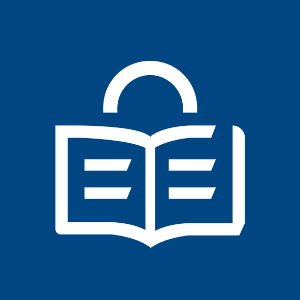Asset Publisher
Inclusion is a human right
We work to break down barriers
Asset Publisher
Not being disabled is not an achievement, but a gift that can be taken away from any of us at any time.
Asset Publisher
The Konrad Adenauer Stiftung takes its social mission seriously and breaks down barriers. People with disabilities are most welcome to enrich our educational seminars through their participation. The dignity and worth of the individual human being does not depend on physical or mental limitations. This attitude is reflected in our mission statement, which was jointly developed by the staff of the Konrad Adenauer Stiftung. It states: “We are guided by the Christian view of humanity”. Addressing each person in their uniqueness and enabling participation is our mission. It is about Civic Education for all.
Inclusion is a big word - we want to make it tangible in our everyday educational work, worldwide. That is why our international work specifically includes the concerns of people with disabilities. More than one billion people worldwide are affected by disability. Developing and emerging countries account for more than 80 per cent of them. Many of them are subject to discrimination and are excluded from political life.
To mark the 30th anniversary of the International Day of Persons with Disabilities, our Multilateral Dialogue Geneva took a closer look at the status of ratification of the Convention on the Rights of Persons with Disabilities worldwide:



Inclusion strengthens cohesion and democracy
In an inclusive society, all people can contribute, regardless of their individual circumstances. Those who have to overcome barriers feel, justifiably, excluded. But those who belong are also prepared to take responsibility - and help shape their environment for the better. Democracy needs inclusion. It thrives on the participation of many different people, bringing their different perspectives and experiences. Inclusion also aims to ensure that not only the loud and the strong are heard.
Here are some examples from our work of what this looks like in practice: Under the theme ‘Inclusion as a driver of innovation’, our Shanghai office, together with Shanghai New York University (NYU), held a workshop with around thirty students and experts from the fields of education and design on how to consistently think in inclusive terms in urban development and planning; the Beijing office is in exchange with the Shijingshan Association of people with disabilities. Our Namibia/Angola office donated two Braille typewriters to the Namibian Federation of the Visually Impaired to promote the political participation of visually impaired people and improve their access to public information, such as the Namibian Constitution.
Empowering young people with disabilities
Simultaneous interpretation into Brazilian sign language is now standard at our traditional “Forte de Copacabana” conference on international security policy in Brazil. And our office in Mongolia has been running the Konrad-Adenauer-Stiftung Community Advocacy Programme (KASCAP) for several years, empowering young people with disabilities to advocate for their own interests. Meanwhile, an alumni reunion of the programme has been established.
Furthermore, our European and International Cooperation Department has a series of publications called “Country Reports with a Difference”. In these reports, our overseas staff examine the question of access to education in their respective countries: To what extent do people with disabilities have the same access opportunities as non-disabled people? What difficulties do they face? Which hurdles have to be overcome? And how can we, as the Konrad Adenauer Stiftung, contribute to giving people with disabilities equal access to (civic) education and to our programmes? Brazil and Canada, Israel and Thailand, Morocco and Belarus are some of the countries we examine to address these questions. We wish you an informative reading!
Further links:
Asset Publisher
Asset Publisher
Asset Publisher
Publications on this topic
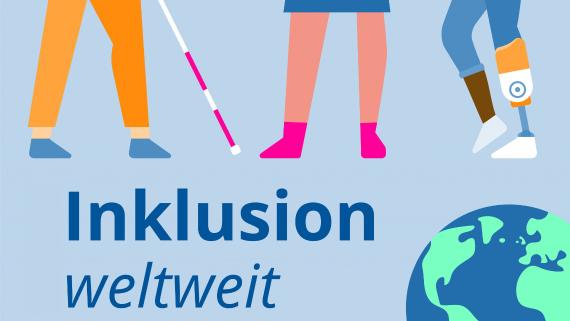 Konrad-Adenauer-Stiftung e. V.
Konrad-Adenauer-Stiftung e. V.
Inclusion and employment of people with disabilities
Inclusion worldwide – current status in Croatia
-
Anita Šakić
-
November 25, 2025
-
Country reports with a difference
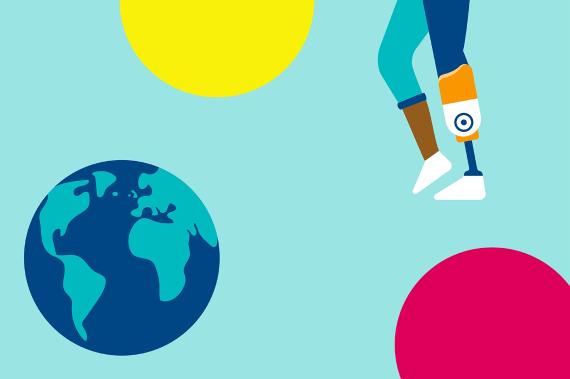 KAS
KAS
Special edition - Country reports with a difference
International comparison of accessibility
-
March 25, 2025
-
Country reports with a difference
 Konrad-Adenauer-Stiftung e. V.
Konrad-Adenauer-Stiftung e. V.
Inklusive Bildung in Usbekistan
Inklusion weltweit – Aktueller Stand aus Usbekistan
-
André Algermißen
-
November 8, 2024
-
Country reports with a difference
 Konrad-Adenauer-Stiftung e. V.
Konrad-Adenauer-Stiftung e. V.
Ringen um den Fortschritt in Spanien
Inklusion weltweit – Aktueller Stand aus Spanien
-
Luisa Bernhardt, Dr. Ludger Gruber
-
June 15, 2024
-
Country reports with a difference
 Konrad-Adenauer-Stiftung e. V.
Konrad-Adenauer-Stiftung e. V.
European elections 2024
Barrier-free?
-
June 11, 2024
-
Country reports with a difference
 Konrad-Adenauer-Stiftung e. V.
Konrad-Adenauer-Stiftung e. V.
Menschen mit Behinderung und Inklusion in Uruguay
Inklusion weltweit – Aktueller Stand aus Uruguay
-
April 25, 2024
-
Country reports with a difference
 Konrad-Adenauer-Stiftung e. V.
Konrad-Adenauer-Stiftung e. V.
New York City – Barrierefreiheit bitte warten!
Inklusion weltweit – Aktueller Stand aus New York, USA
-
Thomas Tödtling, Annika Ungruhe
-
February 8, 2024
-
Country reports with a difference
 Konrad-Adenauer-Stiftung e. V.
Konrad-Adenauer-Stiftung e. V.
Ameniens ambitionierte Ziele für eine (bildungs-)inklusive Gesellschaft 2025
Inklusion weltweit – Aktueller Stand aus Armenien
-
Annika Mainka, Matthias Hespe, Helena Rentzing
-
November 24, 2023
-
Country reports with a difference
 Konrad-Adenauer-Stiftung e. V.
Konrad-Adenauer-Stiftung e. V.
„Leaving No One Behind?“ – Inklusion in Japan im Stresstest
Inklusion weltweit – Aktueller Stand aus Japan
-
Rabea Brauer
-
November 22, 2023
-
Country reports with a difference
 Konrad-Adenauer-Stiftung e. V.
Konrad-Adenauer-Stiftung e. V.
Zypern auf dem Weg zur Inklusion
Inklusion weltweit – Aktueller Stand aus Zypern
-
Marian Wendt, Martha Kontodaimon
-
November 13, 2023
-
Country reports with a difference
 Konrad-Adenauer-Stiftung e. V.
Konrad-Adenauer-Stiftung e. V.
Der lange Weg zur Inklusion in Namibia
Inklusion weltweit – Aktueller Stand aus Namibia
-
Natalie Russmann
-
November 6, 2023
-
Country reports with a difference
 Konrad-Adenauer-Stiftung e. V.
Konrad-Adenauer-Stiftung e. V.
Arbeiten an der Inklusion
Inklusion weltweit – Aktueller Stand aus Griechenland
-
Marian Wendt, Martha Kontodaimon
-
October 24, 2023
-
Country reports with a difference
 Konrad-Adenauer-Stiftung e. V.
Konrad-Adenauer-Stiftung e. V.
Volksrepublik China – Inklusion in Shanghai
Inklusion weltweit – Aktueller Stand aus Shanghai, VR China
-
Chengzhan Zhuang
-
September 22, 2023
-
Country reports with a difference
 Konrad-Adenauer-Stiftung e. V.
Konrad-Adenauer-Stiftung e. V.
Digital Solutions for better Inclusion in Romania
Inclusion worldwide – current status from Romania
-
Katja Christina Plate
-
July 24, 2023
-
Country reports with a difference
 Konrad-Adenauer-Stiftung e. V.
Konrad-Adenauer-Stiftung e. V.
Zugang zum französischen Bildungssystem für Menschen mit Behinderungen
Inklusion weltweit – Aktueller Stand aus Frankreich
-
Caroline Kanter, Nele Katharina Wissmann
-
July 6, 2023
-
Country reports with a difference
 Konrad-Adenauer-Stiftung e. V.
Konrad-Adenauer-Stiftung e. V.
Von Bevormundung zu Teilhabe – Menschen mit Behinderung in Chile
Inklusion weltweit – Aktueller Stand aus Chile
-
Hartmut Rank, Lea Osiander
-
July 6, 2023
-
Country reports with a difference
 Konrad-Adenauer-Stiftung e. V.
Konrad-Adenauer-Stiftung e. V.
Kolumbien – Menschen mit Behinderung und Inklusion
Inklusion weltweit – Aktueller Stand aus Kolumbien
-
Hartmut Rank, Leonie Wittenstein
-
July 6, 2023
-
Country reports with a difference
 Konrad-Adenauer-Stiftung e. V.
Konrad-Adenauer-Stiftung e. V.
Schweden - Ein Vorbild im Bereich Inklusion?
Inklusion weltweit – aktueller Stand aus Schweden
-
Charlotte Storch
-
April 18, 2023
-
Country reports with a difference
Event Reports on the topic
Event Reports on the topic
 Konrad-Adenauer-Stiftung e. V.
Konrad-Adenauer-Stiftung e. V.
Global Disability Summit (GDS) 2025
International stage for inclusion and participation
-
Andrea Ellen Ostheimer
-
December 3, 2025
-
Event reports

Launch of Namibian Sign Language App
National Disability Policy Milestone
-
Claudia Gossow
-
November 6, 2025
-
Event reports

KAS Community Advocacy Program (KASCAP) 2025
Stärkung politischer Teilhabe von Menschen mit Behinderungen
-
Gombosuren Tsermed
-
August 18, 2025
-
Event reports

Programa de capacitación sobre la participación política para personas sordas en Costa Rica
Proyecto pionero en la lengua de señas
-
August 1, 2025
-
Event reports
 KI
KI
Inclusive education: Equal opportunities for everyone
A project for anyone who is ready to take responsibility for positive change in our environment.
-
June 2, 2025
-
Event reports
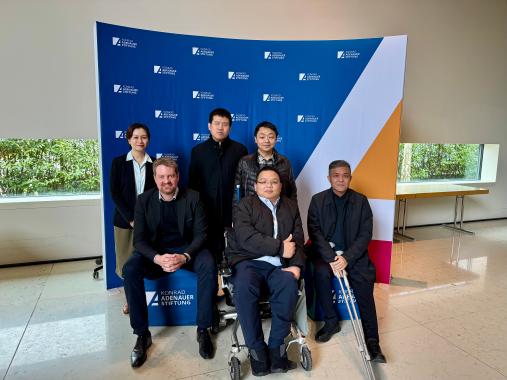
KAS Peking mit Delegation beim Global Disability Summit 2025
Internationaler Austausch in Berlin
-
April 16, 2025
-
Event reports
 KAS Malaysia
KAS Malaysia
Disability Rights & Advocacy: Building a More Equitable Nation
KAS Malaysia and the Malaysian Institute of Management (MIM) host their first Disability & Advocacy Event
-
Idzaid Idros
-
March 19, 2025
-
Event reports
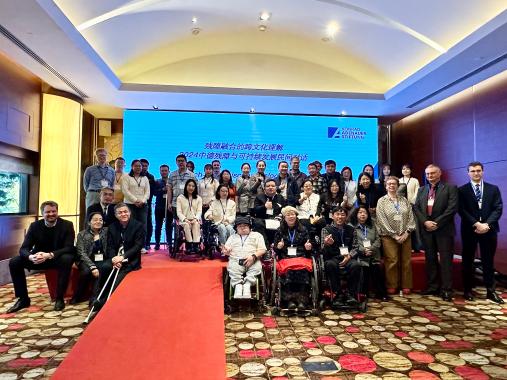
II. Deutsch-Chinesischer Dialog zur sozialen Inklusion von Menschen mit Beeinträchtigungen
Erfahrungsaustausch zwischen Vertretern aus Zivilgesellschaft, Wissenschaft, Politik und Wirtschaft
-
November 29, 2024
-
Event reports
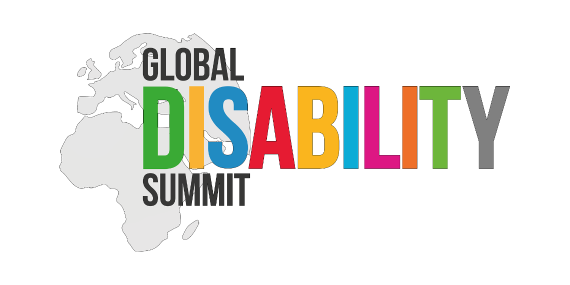
Political Participation for Everyone and Everywhere
KAS Jordan at the Multi-Regional Global Disability Summit in Amman
-
Layan Ounis
-
November 19, 2024
-
Event reports
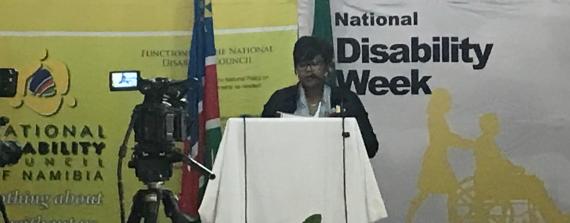
National Disability Week in Namibia
Inclusivity in Namibia
-
Natalie Russmann
-
March 21, 2024
-
Event reports
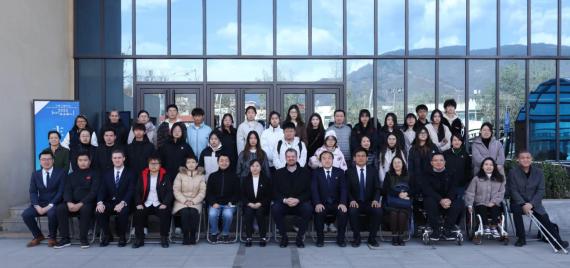
Erster deutsch-chinesischer Dialog zur sozialen Inklusion von Menschen mit Beeinträchtigungen
Teilhabe in China und Deutschland
-
November 20, 2023
-
Event reports
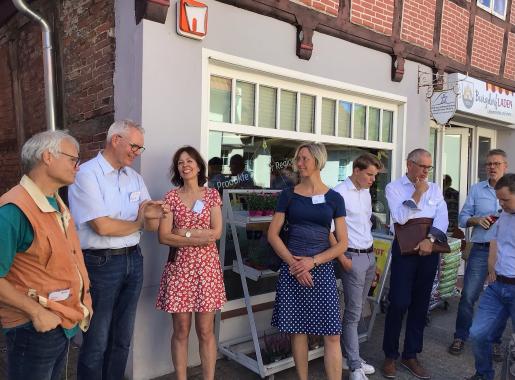
Workshop inklusive Wesermarsch
Als Vorbild dient die Gemeinde Ovelgönne
-
August 28, 2023
-
Event reports
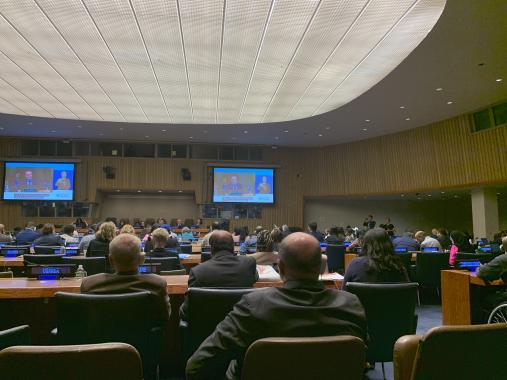 KAS
KAS
Die COSP16 – Rechte von Menschen mit Behinderung weltweit
Andrea E. Ostheimer, Vertreterin der Konrad-Adenauer-Stiftung bei den Vereinten Nationen, New York
-
June 29, 2023
-
Event reports
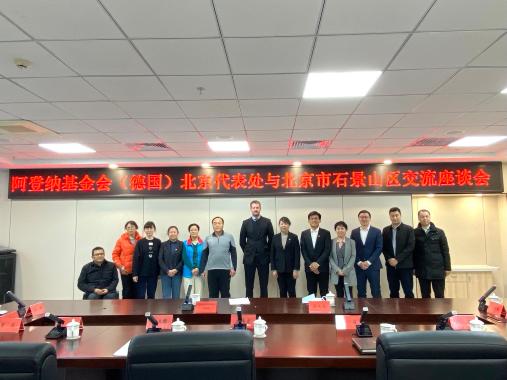
Pekinger KAS besucht Behindertenverband
Austausch mit dem Behindertenverband Shijingshan
-
February 14, 2023
-
Event reports




